#The Space: A radical social experiment in Web3
| Translator: Oliz | Proofreader: shawn
| Original link: https://medium.com/coinmonks/radical-markets-can-work-on-blockchain-our-web3-experiment-the-space-shows-how-1b5d49b91d27
Markets are also often plagued by political factors. The richest people can usually run wild. Imagine a combination of market and democracy, allowing to take the best of both, and get rid of the dross, what would it be like? - Radical Market
Imagine All People/Share One World - John Lennon
In recent months, Matters Lab has launched and piloted a prototype of The Space project — a large-scale experiment in which any player can own and trade in tokens on a blockchain’s digital public graffiti wall Color pixels.
While The Space is inspired by homogeneous projects such as Reddit Place and coordinated social experiments like Ai WeiWei and Olafur Eliasson's public art Moon. The Space introduces cutting-edge concepts such as radical markets, Universal Basic Income (UBI) and the Harberger Tax, extending the boundaries of collaborative creation.
We might be tempted to start thinking: How can radical markets fit into experiments on the blockchain? How do we empower content creators working under the new incentive model to monetize their work? How can a community collaborate and handle differences in a truly decentralized and autonomous environment?
When Reddit released the collaborative art project in 2017, users quickly filled the 1,000-by-1,000-pixel digital whiteboard with national flags, LGBT flags, internet memes, and secondary creations of Mona Lisa. But alas, before we could see its full potential, Reddit Place was torn down after 72 hours of creation — all the artwork was turned into information dust on the internet, even if the video of the creation process at the time was still there. be preserved.
On a centralized server, a decision maker has absolute control over the project life cycle. But in Web3, when everything is recorded on a public ledger, we can expect Space to exist forever.
What is the space?
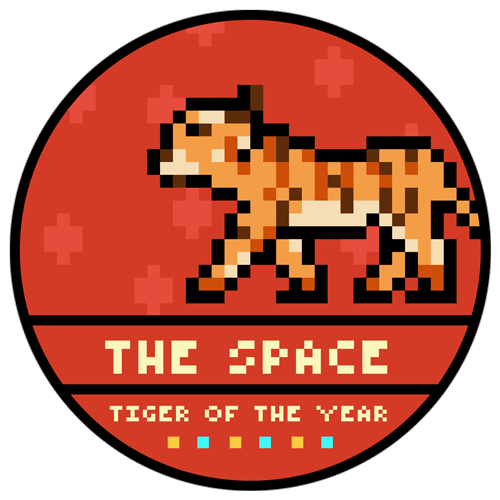
The Space is a permanent, public area where you can paint to earn points. It runs in the decentralized web3, supported by blockchain technology, and all members can own and trade the colored pixels of the digital graffiti wall in the form of tokens.
The Space reconstructed the game mode of Reddit Place, and adopted NFT to guarantee the rights of each pixel. The Harberger tax dominates the public space, and the Universal Basic Income (UBI) guarantees that everyone involved can benefit from it. Through smart contracts, the operation mechanism of The Space can be openly, transparently and permanently stored on the blockchain, and can be viewed by anyone at any time. The Space is backed by blockchain and at the helm of a DAO. DAO is a native concept on the Internet, where members can make decisions together from the bottom up without central leadership. This means that unlike similar projects in web2, no authority can shut down The Space and all artwork will be permanently accessible.
How the Harberger Tax and Universal Basic Income Work at The Space
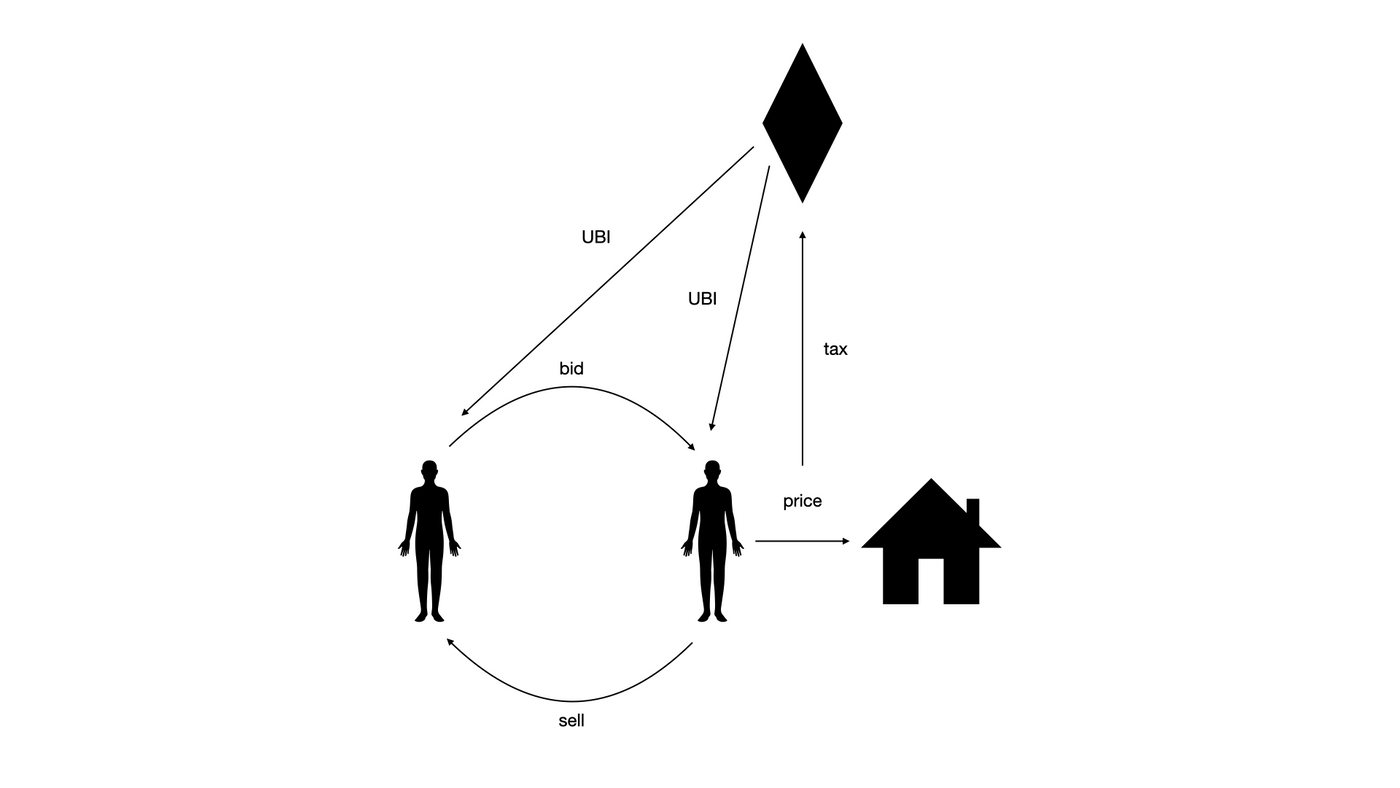
The Space is the first large-scale social experiment to integrate blockchain applications with the concept of Harberger Tax and Universal Basic Income (UBI), and it aims to solve the dilemma between public and private ownership. Glen Weyl and Eric Posner are famous for their tirade on the Harberger tax in the book "Radical Markets" and in their paper "Property Is Just Another Name for Monopoly." A Harberger tax allows society to use public resources efficiently to promote economic development and the well-being of all involved. It uses market forces to regulate the (use) of public assets, reducing inefficiencies in property rights and economic distribution.
The two main principles of the Harberger tax:
- Citizens can set a price on the property they own and pay a tax proportional to the price
- Property is always in a saleable state. At any moment, anyone can buy a property based on your list price.
These two principles prevent any interest group from having the right to monopolize social wealth, while giving everyone the same opportunity to create social wealth.
Rouviere writes in his article that the Harberger tax prevents asset owners from setting very high, monopolistic holder prices (which would make them tax-heavy ), or introducing additional costs for bargaining ( Sellers are always setting prices), making it easier for the market to distribute property to productive property owners .
Some smaller but highly innovative projects have applied the Harberger tax, such as This Artwork Is Always On Sale , Wild Cards , and The Geo Web Project .
Game mechanics of The Space
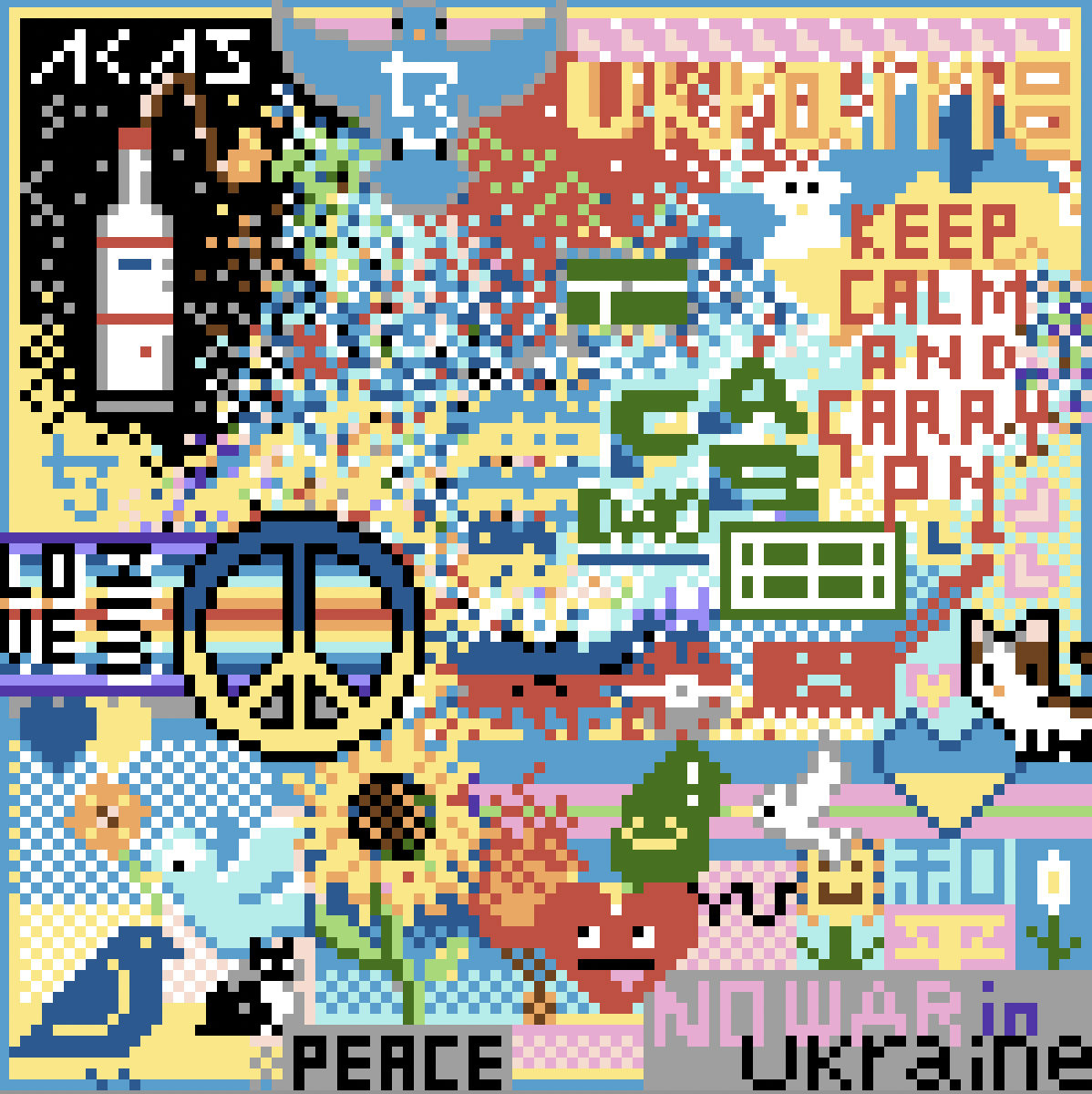
In The Space, each pixel is a tradable NFT. Pixel owners can create the artwork they want by changing the color of the pixel. The Space's electronic graffiti wall operates through blockchain transactions. Built on the ERC721 token protocol, pixel blocks are traded under the Harberger tax system: the owner of each image must clearly price his image to make it easy to trade.
Taking inspiration from the Harberger Tax, The Space allows pixel owners to set any price on their pixel blocks. At the same time, they have to pay a tax proportional to the price to the smart contract for their region, and part of the tax is returned to all pixel owners in the form of Universal Basic Income (UBI). Not all people will receive the same income, because UBI is distributed according to pixel blocks, and those with more pixels will receive more dividends. The Harberger tax encourages each pixel block to be ready for sale. We want to challenge established ideas about property rights and explore a new type of property rights that goes beyond capitalist or socialist ideologies.
In short, The Space's rules are as follows:
- Pixel owners can charge any price for the pixel blocks they own and pay taxes on that price.
- If the owner of the pixel does not want to sell the pixel block, they can increase the price to prevent the transaction from taking place. But it also means that you pay a higher tax for holding that pixel block.
- A portion of the tax received is recorded on a smart contract and returned to the pixel owner through a Universal Basic Income (UBI) model.
- So whether pixel holders choose to sell or keep their blocks, the community benefits. If they choose to keep the block, the community will enjoy a higher Universal Basic Income (UBI). If they decide to sell the block, the community will get the portion of the artwork they want.
By formulating these rules, we hope to establish effective rules for the allocation of scarce public resources and maximize the liquidity of the "pixel market".
The Space is a public resource, but we are privatizing it for buyers in the market. On the other hand, although The Space is private and allowed to trade, it belongs to the public. What's really interesting is that Web3 and the Canadian currency bring a new kind of ownership that can't be classified as a capitalist or socialist camp. The most apt expression is a radical market: a truly open, free, competitive market that leads to a fairer, more prosperous and win-win situation.
foreseeable challenges
While The Space aims to be a reciprocal game, we can expect three types of players to emerge when it is released to the public.
- Creator: Delivers information, expresses social views, creates artwork, is willing to pay taxes
- Speculators: buy when a block of pixels is expected to appreciate in value, in order to sell when its price reaches a higher point
- People who pick up wool: buy pixel blocks at the cheapest price as proof of obtaining a universal basic income, and carefully evaluate whether they will lose money.
In addition, the creator may cooperate with others to create a complete work with a grand theme, or it may maliciously destroy (cover or disrupt) other people's works through the transaction of pixel blocks. We will wait and see how the participants interact at The Space.
The Space pilot
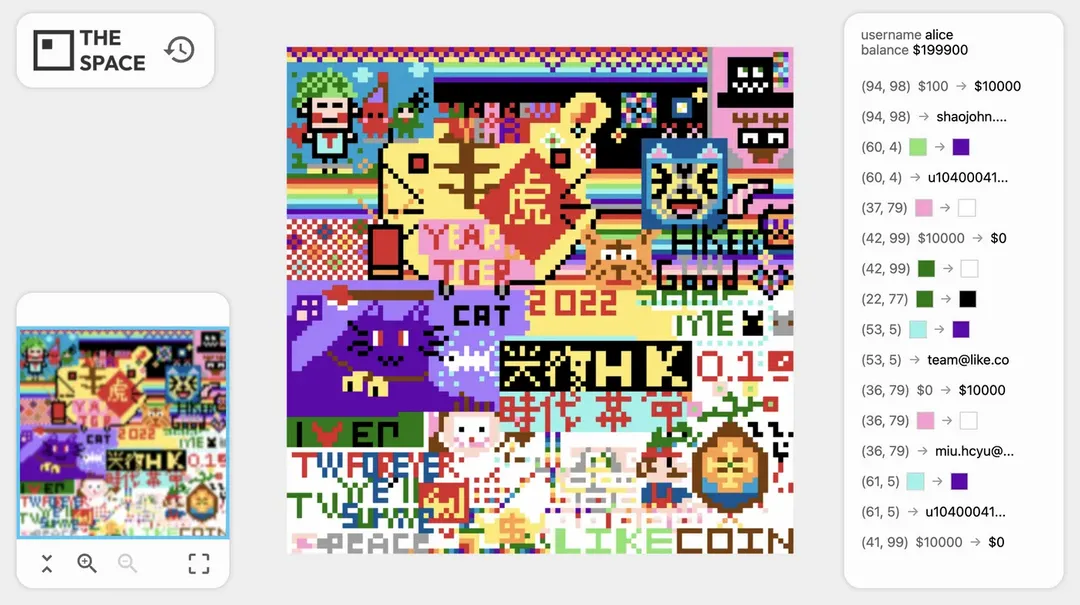
We're testing a model of The Space Phase 1 with no actual monetary transactions. We want to observe, debug and troubleshoot on a small scale in a controlled time. Through trial and error, our goal is to enhance the user experience, improve social dynamics, and redefine the economic model.
Since December , we have passed 5 playtests, giving 300 creators the opportunity to create, and at least 50,000 pixel blocks have been colored as tokens.
In our latest test experiment , 50 Taiwanese artists collaborated on The Spaces and released the final artwork as NFT via the akaSwap platform. 99% credit goes to @IMC_Worldwide , @DirectRelief , @save_children .
While we have n't implemented any taxation or economic incentives in the prototype yet, we can already observe in these small-scale experiments how players cooperate to solve problems and create new economic models.
In our next article, we'll take a closer look at how players interact, resolve conflicts, and co-author on The Space .
The Space: A radical social experiment in Web3
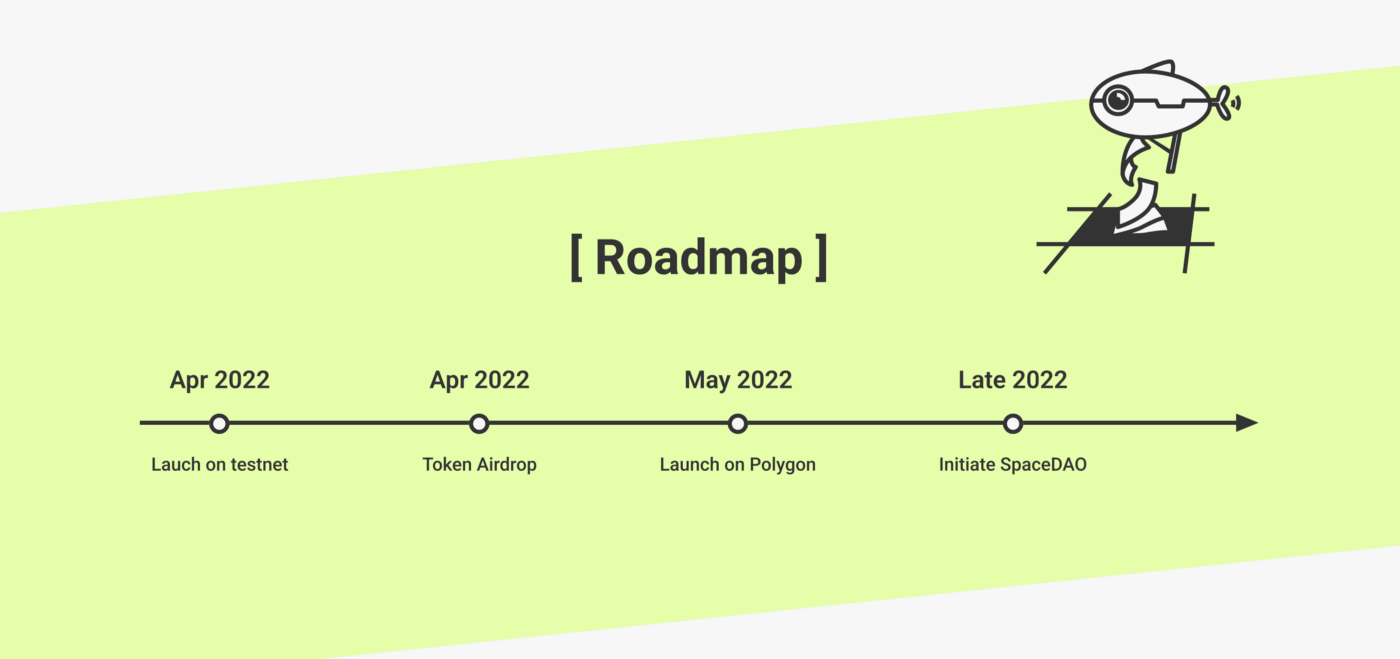
On the Matters team , we are passionate about how to run a Decentralized Autonomous Organization (DAO) to build a self-governing community together. And Matters News is an example of a successful practice.
So we decided to go a step further with The Space — to build a **permanent, readily accessible,** collaborative social experiment on the blockchain. Anyone can participate in The Space as long as they hold The Space's tokens.
Aggressive markets may never materialize. If put into practice, it could have too many disruptive effects on corporate governance, the functioning of markets and national systems. The Space showcases a "if possible" social experiment within control, a technology that can be built and improved . It's a gradual, gentle idea that we can have fun with.
One participant said:
The Space was a social experiment, an experiment that turned out to be very successful. The community can create such beautiful images even without a leader's command - and that's what I love about this game. The strength of this tight-knit community is fascinating.
Ultimately, The Space will be a social experiment that guides players to collaborate, create, and when necessary confront each other in order to create beautiful artwork together, in a world where there is no central authority to set the rules and all benefits are shared .
We will wait and see the future development of The Space, how about you?
The final version of The Space will be launched on the testnet in April 2022 and will be officially released in May .
Like my work? Don't forget to support and clap, let me know that you are with me on the road of creation. Keep this enthusiasm together!






